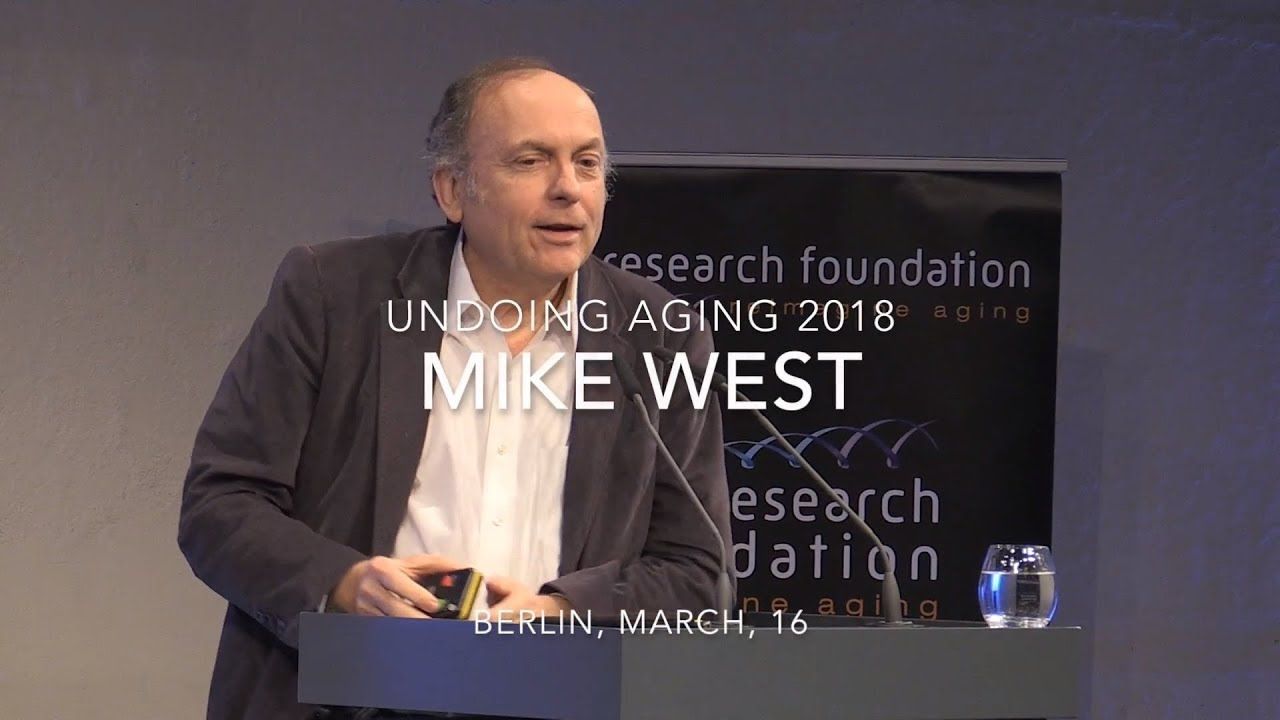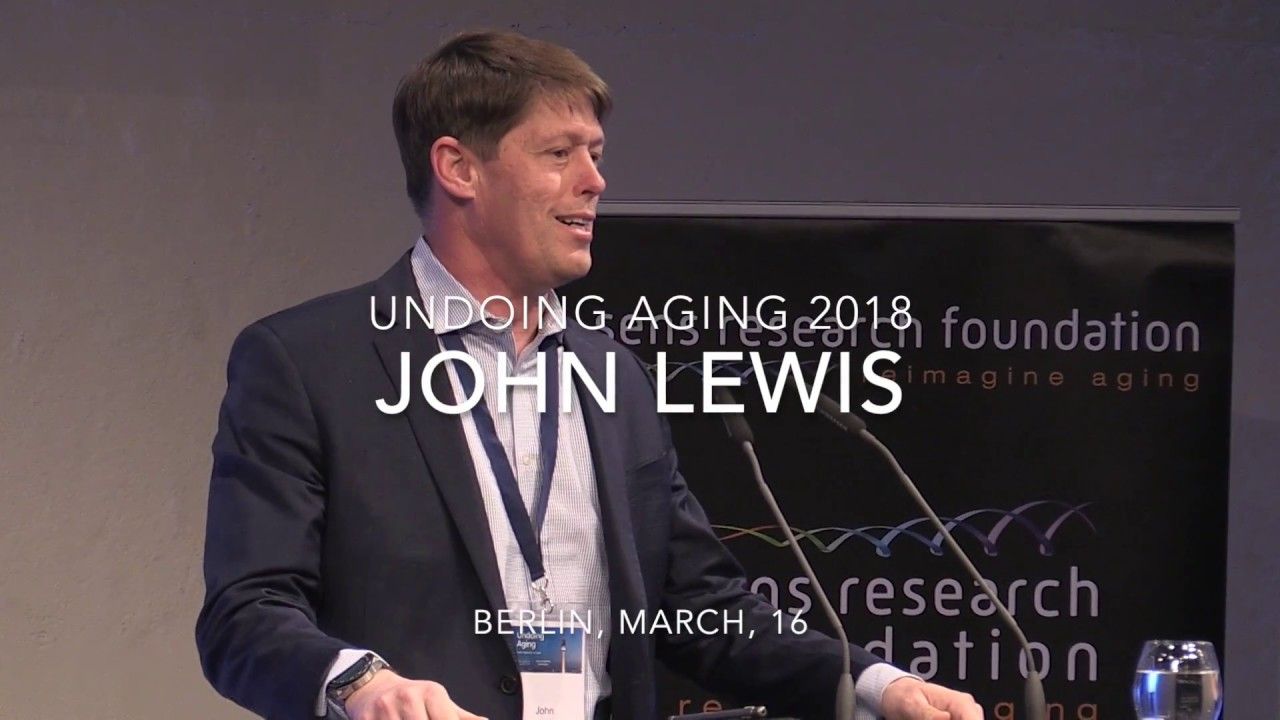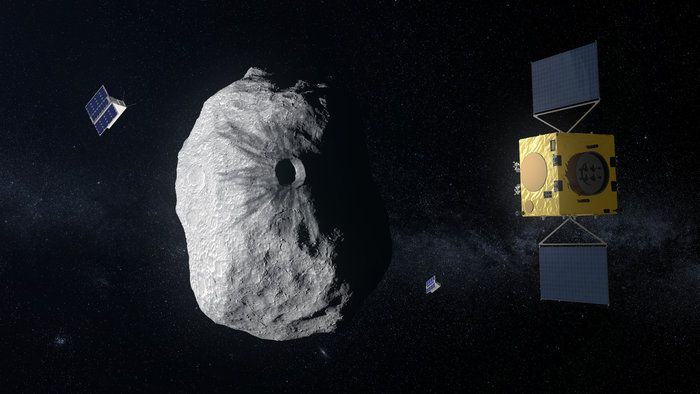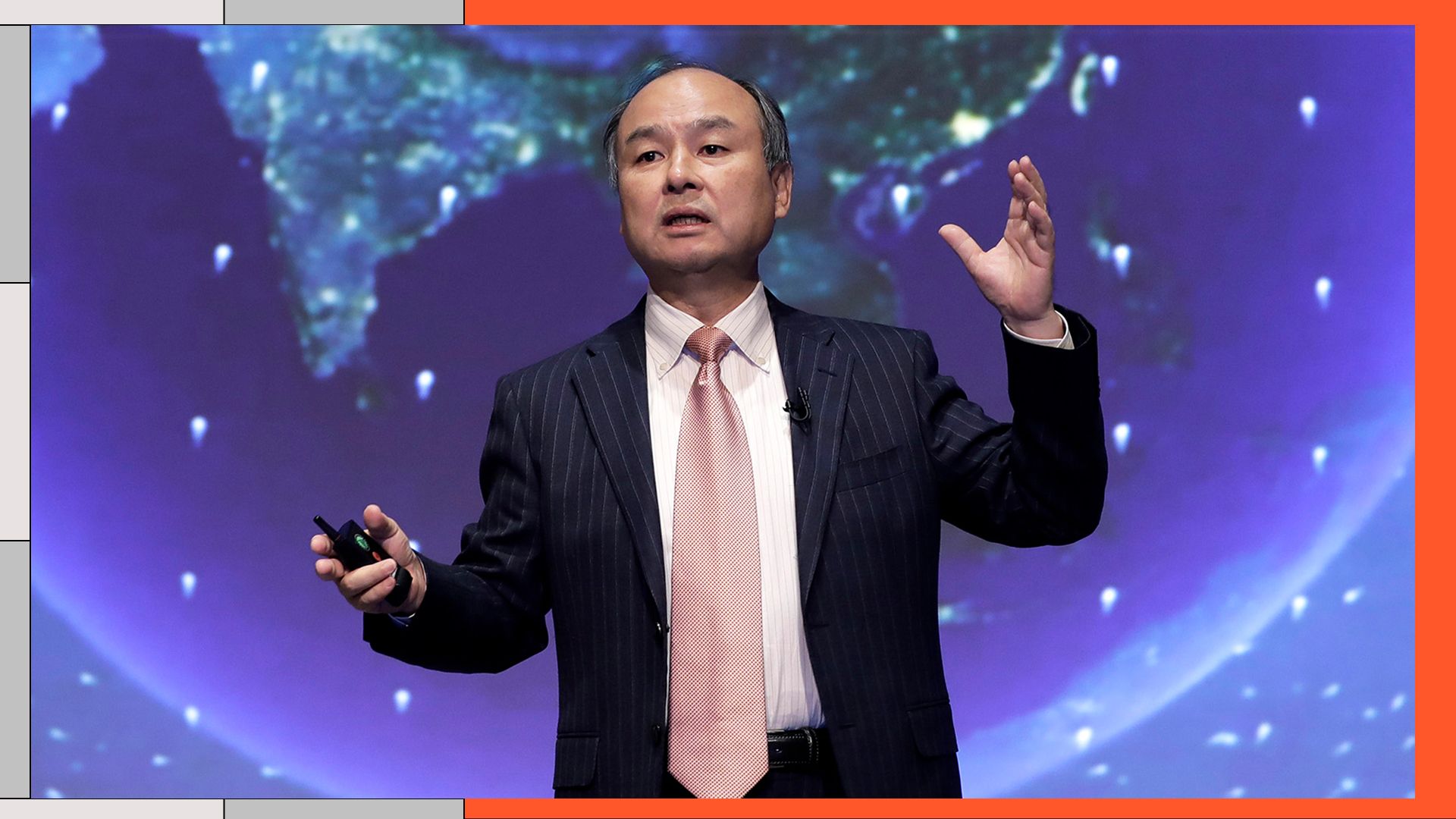Page 8840
May 31, 2018
Mike West, CEO AgeX, at
Posted by Michael Greve in categories: biotech/medical, life extension

New video from Undoing Aging 2018: Mike West, Founder, and CEO of AgeX, presenting their work on induced tissue regeneration: Leveraging the unique regenerative potential of pluripotent stem-cell-derived therapeutics.
Accelerating rejuvenation therapies to repair the damage of aging. Berlin, March, 15 — 17.
May 31, 2018
John Lewis, CSO of Oisin Biotechnologies, presenting at
Posted by Michael Greve in categories: biotech/medical, life extension

New video from Undoing Aging 2018: John Lewis, CTO of Oisín Biotechnologies presenting their work developing very selective therapies to kill senescence cells.
Accelerating rejuvenation therapies to repair the damage of aging. Berlin, March, 15 — 17.
Continue reading “John Lewis, CSO of Oisin Biotechnologies, presenting at” »
May 31, 2018
Testing deflection
Posted by Klaus Baldauf in categories: robotics/AI, space, transportation
In 2022, NASA’s Double Asteroid Redirection Test (DART) collides with the smaller body of the Didymos binary asteroid system in an attempt to measurably shift its orbit.
ESA’s Hera mission, now under study, will examine the aftermath of this impact to help determine whether humans can deflect threatening asteroids.
Hera will also demonstrate the ability to operate at close proximity around a low-gravity asteroid with some on-board autonomy similar in scope to a self-driving car, going on to deploy Europe’s first deep-space CubeSats, and potentially also a micro-lander, to test out a new multi-point intersatellite link technology.
May 31, 2018
Europe is building more wind and solar — without any subsidies
Posted by Bill Kemp in categories: energy, sustainability
In the United States, the energy market dynamics are quite different. There is less top-down pressure to deploy renewables in the US, and the main support comes in the form of tax credits on the back end rather than feed-in tariffs or other subsidies on the customer-facing side. These subsidies are applied across the industry and not through a competitive bidding process. As a result, there isn’t as strong a push to get the industry off the incentives that are available.
But one element of the American renewable energy experience is gaining ground in Europe, namely the use of power purchasing agreements (PPAs) with utilities to buy electricity at a fixed price for years at a time.
PPAs are far less common in Europe than in the United States, but some of these new unsubsidized renewable energy projects are counting on them.
Continue reading “Europe is building more wind and solar — without any subsidies” »
May 31, 2018
Popular reactions to life extension
Posted by Nicola Bagalà in categories: biotech/medical, life extension
Research on people’s reaction to life extension is rather rare; this article discusses two such papers.
Two papers by Partridge et al [1, 2], both published in 2009, provide the somewhat rare opportunity to examine some concerns about life extension as formulated by actual people, rather than their general, more abstract forms. As highlighted in the studies, research on the public’s perception of life extension science has been very much neglected; this, in turn, has made it harder to identify the misconceptions and incorrect information fueling some common concerns about life extension and made it even harder to address those very concerns. Needless to say, the more that the public views life extension negatively, the less supportive that it will probably be, which is bad news for researchers.
The papers present the results of several interviews, conducted either in person or on the phone, aimed at understanding what ethical concerns the interviewees had about life extension and what implications they thought extended human lifespans would have for themselves and for society. The research was conducted on a sample of the Australian population only, but the issues they raised were entirely representative of a typical discussion about life extension. In both studies, the interviewees were presented with the general premise of possibly slowing down aging and the onset of age-related diseases in order to greatly extend human healthy lifespan.
May 31, 2018
A Health and Longevity Strategy
Posted by Steve Hill in categories: biotech/medical, life extension
Who wants to lose weight, feel great, and live a long and healthy life, and what does it take to achieve these goals? Diet and exercise are equally important in long-term health, but let’s look at what recent science is telling us about the healthiest diets.
This article will rely heavily on University of Southern California professor Valter Longo’s work because I consider it to be the gold standard for nutrition research, and his recommendations in his book The Longevity Diet are well-supported with both data and good logic. Longo is the director of the Longevity Institute at USC and the IFOM Program on Longevity and Cancer in Milan.
He comes from an area of Italy known for very long lives, and part of his research focus has been looking at similar areas around the world and why those people live so much longer than normal.
May 31, 2018
How Masayoshi Son Became One of the Most Powerful Investors in Tech
Posted by Derick Lee in category: futurism
Love him or hate him, Softbank’s Masayoshi Son is shaking up Silicon Valley and global investing. He once lost more money than anyone has ever lost in history, but has since recovered to make some of the world’s most successful tech investments. (Video by Robin Fall) (Source: Bloomberg)
May 31, 2018
ANA Holdings tips Y200m into spacecraft company
Posted by Klaus Baldauf in categories: robotics/AI, transportation
All Nippon Airways’ parent company ANA Holdings has made a Y200 million ($1.8 million) investment in commercial space flight company PD Aerospace.
The equity infusion, via a third-party allotment, comes on top of a Y20.4 million investment that the company made in October 2016.
“ANA is excited about the future of transportation and how PD Aerospace’s space technology will play an integral role,” says Yoshiaki Tsuda, vice-president of ANA Digital Design Lab. “We are increasing our support to help expedite the project’s timeline of testing and launching an unmanned spacecraft to an altitude of 100km.”
Continue reading “ANA Holdings tips Y200m into spacecraft company” »
May 31, 2018
A Forgotten Element Could Help Us Redefine The Way We Measure Time
Posted by Genevieve Klien in categories: particle physics, quantum physics, satellites
A rare earth element that doesn’t get much mention could become the key to upgrading atomic clocks to become even more accurate. This could help us explore space and track satellites, and even keep the world’s time zones in sync.
Atomic clocks use the oscillations of atoms under laser fire as a measurement of time, in the same way a grandfather clock uses the swing of a pendulum. They can lose less than a second over 50 million years, depending on the elements used — but scientists want even greater accuracy.
That’s where lutetium (Lu) comes in. It offers both a higher level of stability and a higher degree of precision than the caesium or rubidium of today’s atomic clocks, according to a team of researchers from the Centre for Quantum Technologies (CQT) in Singapore.
Continue reading “A Forgotten Element Could Help Us Redefine The Way We Measure Time” »
















